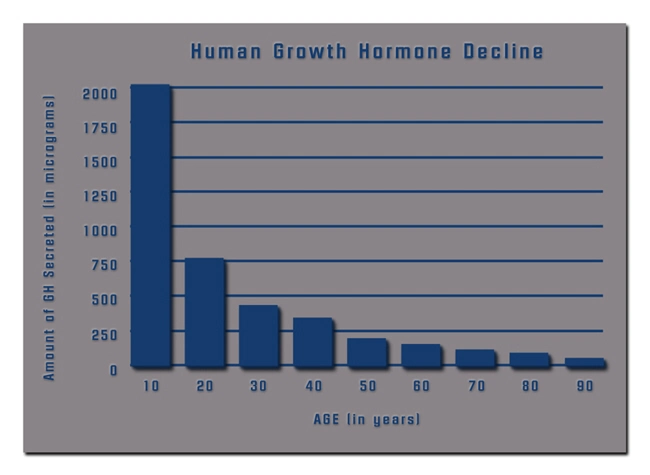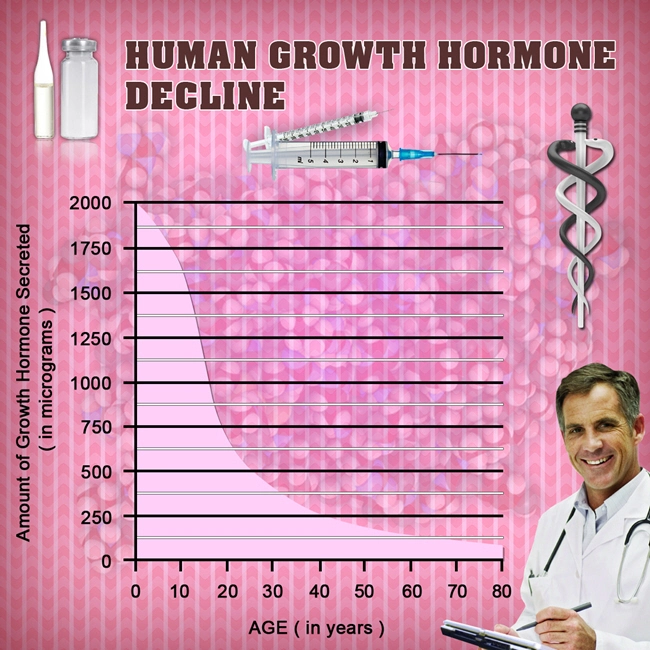
Introduction
Tamoxifen, a widely prescribed medication for the treatment of hormone receptor-positive breast cancer, has been a cornerstone in oncology for decades. While its benefits in reducing the risk of cancer recurrence are well-documented, the psychological side effects, particularly depression, have garnered less attention, especially in the context of American men. This article delves into the underrated connection between tamoxifen treatment and depression, highlighting the need for increased awareness and proactive management strategies.
Understanding Tamoxifen and Its Use in Men
Tamoxifen functions as a selective estrogen receptor modulator (SERM), which means it can block the effects of estrogen in breast tissue. Although primarily used in women, tamoxifen is also prescribed to men with breast cancer, as well as those at high risk of developing the disease. The drug's efficacy in men is comparable to that in women, but the psychological impact may differ due to various factors, including societal expectations and the stigma surrounding male breast cancer.
The Prevalence of Depression in Tamoxifen Users
Studies have shown that individuals undergoing tamoxifen therapy may experience a higher incidence of depression compared to those not receiving the treatment. A meta-analysis published in the *Journal of Clinical Oncology* found that up to 20% of patients on tamoxifen reported depressive symptoms, a rate significantly higher than in the general population. For American men, who may already face challenges in acknowledging and addressing mental health issues, this increased risk can be particularly concerning.
Mechanisms Linking Tamoxifen to Depression
The exact mechanisms by which tamoxifen may contribute to depression are not fully understood, but several theories have been proposed. One hypothesis suggests that tamoxifen's interference with estrogen pathways could affect neurotransmitter systems, such as serotonin, which plays a crucial role in mood regulation. Additionally, the stress of cancer diagnosis and treatment, coupled with the side effects of tamoxifen, such as hot flashes and fatigue, can exacerbate depressive symptoms.
Recognizing and Addressing Depression in Men on Tamoxifen
Recognizing depression in men on tamoxifen can be challenging, as symptoms may be subtle or attributed to other causes. Common signs include persistent sadness, loss of interest in activities, changes in sleep or appetite, and difficulty concentrating. Healthcare providers should routinely screen for depression in patients undergoing tamoxifen therapy and provide appropriate interventions, such as counseling or antidepressants, when necessary.
The Role of Support Systems and Education
Support systems play a vital role in helping men navigate the challenges of tamoxifen treatment and depression. Family, friends, and support groups can offer emotional support and practical assistance, while educational resources can empower patients to understand their treatment and its potential side effects. Organizations like the American Cancer Society and the National Alliance on Mental Illness provide valuable information and resources tailored to men facing cancer and mental health issues.
Conclusion
The connection between tamoxifen treatment and depression in American men is an important, yet often overlooked, aspect of cancer care. By increasing awareness, improving screening practices, and fostering robust support systems, healthcare providers can better address the mental health needs of men on tamoxifen. As research continues to unravel the complexities of this relationship, it is crucial that we prioritize the holistic well-being of all cancer patients, ensuring they receive the comprehensive care they deserve.
Contact Us Today For A Free Consultation
Dear Patient,
Once you have completing the above contact form, for security purposes and confirmation, please confirm your information by calling us.
Please call now: 1-800-380-5339.
Welcoming You To Our Clinic, Professor Tom Henderson.

- Tamoxifen: A Key Advance in Treating Male Breast Cancer in the US [Last Updated On: February 20th, 2025] [Originally Added On: February 20th, 2025]
- Tamoxifen: Key to Reducing Breast Cancer Recurrence in American Males [Last Updated On: February 27th, 2025] [Originally Added On: February 27th, 2025]
- Understanding the Pharmacodynamics and Sidelines: A Thorough Scrutiny of Tamoxifen [Last Updated On: March 2nd, 2025] [Originally Added On: March 2nd, 2025]
- Exploring the Multifaceted Role of Tamoxifen: From Breast Cancer Treatment to Emerging Medical Applications [Last Updated On: March 3rd, 2025] [Originally Added On: March 3rd, 2025]
- Exploring Tamoxifen's Role in Male Health and Long-Term Safety Concerns [Last Updated On: March 4th, 2025] [Originally Added On: March 4th, 2025]
- Exploring Tamoxifen Therapy in Men: Benefits, Mechanisms, and Health Implications [Last Updated On: March 5th, 2025] [Originally Added On: March 5th, 2025]
- Exploring Tamoxifen's Role in Treating Hormone-Sensitive Cancers in Adolescent Males [Last Updated On: March 6th, 2025] [Originally Added On: March 6th, 2025]
- The Role of Tamoxifen in Treating Male Breast Cancer: Benefits, Side Effects, and Awareness [Last Updated On: March 7th, 2025] [Originally Added On: March 7th, 2025]
- Deciphering Tamoxifen Resistance Mechanisms in Hormone Receptor-Positive Breast Cancer: Insights and Strategies [Last Updated On: March 8th, 2025] [Originally Added On: March 8th, 2025]
- The Dual Role of Tamoxifen in Preoperative and Postoperative Care for American Males [Last Updated On: March 9th, 2025] [Originally Added On: March 9th, 2025]
- Optimizing Tamoxifen Dosage for Effective Breast Cancer Treatment in American Males [Last Updated On: March 12th, 2025] [Originally Added On: March 12th, 2025]
- Exploring the Efficacy of Tamoxifen in Pediatric Cancer Treatment: A New Frontier in Oncology [Last Updated On: March 13th, 2025] [Originally Added On: March 13th, 2025]
- Unraveling the Biochemical Mechanisms of Tamoxifen in Treating Hormonal Cancers Among American Males [Last Updated On: March 14th, 2025] [Originally Added On: March 14th, 2025]
- Unveiling the Risks: A Comprehensive Look at Long-Term Tamoxifen Use in American Males [Last Updated On: March 15th, 2025] [Originally Added On: March 15th, 2025]
- Tamoxifen: Managing Drug Interactions in American Males with Breast Cancer [Last Updated On: March 18th, 2025] [Originally Added On: March 18th, 2025]
- Tamoxifen's Efficacy and Role in Treating Male Breast Cancer in American Males [Last Updated On: March 19th, 2025] [Originally Added On: March 19th, 2025]
- Tamoxifen: A Comprehensive Guide for American Men's Breast Cancer and Estrogen-Related Conditions [Last Updated On: March 19th, 2025] [Originally Added On: March 19th, 2025]
- Tamoxifen's Role in Cancer Treatment: Insights for American Males from Experimental Studies [Last Updated On: March 19th, 2025] [Originally Added On: March 19th, 2025]
- Tamoxifen for American Males: Breast Cancer Treatment and Prevention Insights [Last Updated On: March 19th, 2025] [Originally Added On: March 19th, 2025]
- Tamoxifen in Male Breast Cancer: Side Effects and Management Strategies [Last Updated On: March 19th, 2025] [Originally Added On: March 19th, 2025]
- Tamoxifen's Role in Reducing Mortality in Male Breast Cancer: Mechanism, Efficacy, Adherence [Last Updated On: March 19th, 2025] [Originally Added On: March 19th, 2025]
- Tamoxifen's Evolving Role in Male Breast Cancer: Treatment, Prevention, and Personalized Medicine [Last Updated On: March 20th, 2025] [Originally Added On: March 20th, 2025]
- Tamoxifen in American Males: Benefits, Risks, and Management Strategies [Last Updated On: March 20th, 2025] [Originally Added On: March 20th, 2025]
- Tamoxifen's Efficacy in American Males with Hormone-Positive Breast Cancer: Treatment and Prevention [Last Updated On: March 21st, 2025] [Originally Added On: March 21st, 2025]
- Tamoxifen's Role in Men's Health: Managing Estrogen-Related Conditions [Last Updated On: March 21st, 2025] [Originally Added On: March 21st, 2025]
- Tamoxifen: Revolutionizing Breast Cancer Treatment for American Men [Last Updated On: March 21st, 2025] [Originally Added On: March 21st, 2025]
- Tamoxifen's Role in Male Hormone Therapy: Benefits and Considerations for American Men [Last Updated On: March 21st, 2025] [Originally Added On: March 21st, 2025]
- Tamoxifen in American Males: Benefits and Risks for Recurrent Cancer Treatment [Last Updated On: March 22nd, 2025] [Originally Added On: March 22nd, 2025]
- Tamoxifen: A Vital Treatment for Hormone Receptor-Positive Breast Cancer in American Men [Last Updated On: March 23rd, 2025] [Originally Added On: March 23rd, 2025]
- Tamoxifen: Revolutionizing Breast Cancer Treatment for American Males [Last Updated On: March 23rd, 2025] [Originally Added On: March 23rd, 2025]
- Tamoxifen in Men: Benefits, Risks, and Management Strategies [Last Updated On: March 23rd, 2025] [Originally Added On: March 23rd, 2025]
- Tamoxifen's Promising Role in Treating Leukemia in Male Patients [Last Updated On: March 23rd, 2025] [Originally Added On: March 23rd, 2025]
- Tamoxifen: Key Cancer Treatment for American Males, Mechanism, and Efficacy [Last Updated On: March 24th, 2025] [Originally Added On: March 24th, 2025]
- Personalizing Tamoxifen Therapy for American Men: Pharmacogenomics and Breast Cancer Treatment [Last Updated On: March 24th, 2025] [Originally Added On: March 24th, 2025]
- Long-Term Effects of Tamoxifen on American Women's Health: A Comprehensive Review [Last Updated On: March 24th, 2025] [Originally Added On: March 24th, 2025]
- Tamoxifen's Potential in Treating Rare Cancers in American Males: A Promising Approach [Last Updated On: March 24th, 2025] [Originally Added On: March 24th, 2025]
- Tamoxifen: Revolutionizing Breast Cancer Treatment in Men and Women [Last Updated On: March 24th, 2025] [Originally Added On: March 24th, 2025]
- Tamoxifen's Impact on Bone Health in American Males: Strategies for Preservation [Last Updated On: March 24th, 2025] [Originally Added On: March 24th, 2025]
- Tamoxifen: A Therapeutic Option for Hormone-Related Gynecomastia in American Males [Last Updated On: March 24th, 2025] [Originally Added On: March 24th, 2025]
- Tamoxifen in American Men: Managing Drug Interactions for Optimal Therapy [Last Updated On: March 25th, 2025] [Originally Added On: March 25th, 2025]
- Tamoxifen Therapy: A Preventive Breakthrough for Male Breast Cancer in America [Last Updated On: March 25th, 2025] [Originally Added On: March 25th, 2025]
- Tamoxifen's Role in Treating and Preventing Male Breast Cancer: A Comprehensive Overview [Last Updated On: March 25th, 2025] [Originally Added On: March 25th, 2025]
- Tamoxifen's Impact on Ovarian Function and Fertility in Breast Cancer Treatment [Last Updated On: March 25th, 2025] [Originally Added On: March 25th, 2025]
- Tamoxifen: A Vital Treatment for Male Breast Cancer in the US [Last Updated On: March 25th, 2025] [Originally Added On: March 25th, 2025]
- Managing Estrogen Fluctuations in American Males with Tamoxifen: A Comprehensive Overview [Last Updated On: March 25th, 2025] [Originally Added On: March 25th, 2025]
- Tamoxifen: Revolutionizing Hormone-Sensitive Cancer Treatment for American Males [Last Updated On: March 25th, 2025] [Originally Added On: March 25th, 2025]
- Tamoxifen: Enhancing Survival in Male Breast Cancer, Dispelling Myths [Last Updated On: March 26th, 2025] [Originally Added On: March 26th, 2025]
- Tamoxifen: A Vital Tool in Men's Health for Breast Cancer and Beyond [Last Updated On: March 26th, 2025] [Originally Added On: March 26th, 2025]
- Tamoxifen Treatment for American Males with Early-Stage Breast Cancer: A Comprehensive Guide [Last Updated On: March 26th, 2025] [Originally Added On: March 26th, 2025]
- Tamoxifen's Role and Efficacy in Treating Male Breast Cancer: A Comprehensive Overview [Last Updated On: March 26th, 2025] [Originally Added On: March 26th, 2025]
- Tamoxifen: Essential Treatment and Prevention for Male Breast Cancer in America [Last Updated On: March 26th, 2025] [Originally Added On: March 26th, 2025]
- Genomic Predictors of Tamoxifen Response in American Male Breast Cancer Patients [Last Updated On: March 26th, 2025] [Originally Added On: March 26th, 2025]
- Tamoxifen's Role in Treating Endocrine Cancers in American Males: A Comprehensive Overview [Last Updated On: March 27th, 2025] [Originally Added On: March 27th, 2025]
- Exploring Tamoxifen Alternatives for Male Breast Cancer: Advances in SERMs and Personalized Medicine [Last Updated On: March 27th, 2025] [Originally Added On: March 27th, 2025]
- Overcoming Tamoxifen Resistance in American Males: Strategies and Future Directions [Last Updated On: March 27th, 2025] [Originally Added On: March 27th, 2025]
- Tamoxifen: Dispelling Myths and Benefits for American Men's Health [Last Updated On: March 27th, 2025] [Originally Added On: March 27th, 2025]
- Tamoxifen Use Linked to Increased Cataract Risk in American Males: A Review [Last Updated On: March 27th, 2025] [Originally Added On: March 27th, 2025]
- Tamoxifen in Male Cancer Care: Benefits, Risks, and Therapeutic Management [Last Updated On: March 27th, 2025] [Originally Added On: March 27th, 2025]
- Tamoxifen: A Promising Treatment for Advanced Hormonal-Dependent Cancers in American Males [Last Updated On: March 27th, 2025] [Originally Added On: March 27th, 2025]
- Tamoxifen: Bridging Therapeutic Gaps in Advanced Male Breast Cancer Treatment [Last Updated On: March 28th, 2025] [Originally Added On: March 28th, 2025]
- Tamoxifen's Impact on Male Breast Cancer: Treatment, Efficacy, and Future Prospects [Last Updated On: March 28th, 2025] [Originally Added On: March 28th, 2025]
- Tamoxifen's Role in American Male Health: Breast Cancer to Prostate Prevention [Last Updated On: March 30th, 2025] [Originally Added On: March 30th, 2025]
- Tamoxifen's Endocrine Impact on Male Breast Cancer Patients: Management and Insights [Last Updated On: March 30th, 2025] [Originally Added On: March 30th, 2025]
- Tamoxifen's Role in Managing Advanced Cancer in American Males: Benefits and Risks [Last Updated On: March 30th, 2025] [Originally Added On: March 30th, 2025]
- Tamoxifen Therapy in American Males: Molecular Determinants and Personalized Treatment Strategies [Last Updated On: April 2nd, 2025] [Originally Added On: April 2nd, 2025]
- Tamoxifen: A New Hope for Enhancing Male Fertility in American Men [Last Updated On: April 3rd, 2025] [Originally Added On: April 3rd, 2025]
- Tamoxifen Toxicity in American Males: Challenges and Management Strategies [Last Updated On: April 3rd, 2025] [Originally Added On: April 3rd, 2025]
- Tamoxifen: A Vital Tool in Treating and Preventing Male Breast Cancer [Last Updated On: April 5th, 2025] [Originally Added On: April 5th, 2025]
- Enhancing Tamoxifen Efficacy in Male Breast Cancer with Adjunct Therapies [Last Updated On: April 5th, 2025] [Originally Added On: April 5th, 2025]
- Tamoxifen: Preventing and Treating Breast Cancer in American Men [Last Updated On: April 6th, 2025] [Originally Added On: April 6th, 2025]
- Tamoxifen's Cardiovascular Impact on American Males: Benefits, Risks, and Management [Last Updated On: April 7th, 2025] [Originally Added On: April 7th, 2025]
- Tamoxifen's Role in Managing Breast Cancer in American Men: Insights and Impacts [Last Updated On: April 7th, 2025] [Originally Added On: April 7th, 2025]
- Tamoxifen Therapy: Revolutionizing Male Breast Cancer Treatment in the US [Last Updated On: April 8th, 2025] [Originally Added On: April 8th, 2025]
- Tamoxifen: Balancing Breast Cancer Benefits and Endometrial Cancer Risks [Last Updated On: April 11th, 2025] [Originally Added On: April 11th, 2025]
- Tamoxifen: A Vital Treatment for Male Breast Cancer in the U.S. [Last Updated On: April 11th, 2025] [Originally Added On: April 11th, 2025]
- Tamoxifen's Role in Preventing Prostate and Other Cancers in American Men [Last Updated On: April 12th, 2025] [Originally Added On: April 12th, 2025]
- Tamoxifen Therapy in Advanced Male Breast Cancer: Efficacy and Case Study Insights [Last Updated On: April 13th, 2025] [Originally Added On: April 13th, 2025]
- Tamoxifen's Role in Chemoprevention of Breast Cancer in High-Risk American Males [Last Updated On: April 13th, 2025] [Originally Added On: April 13th, 2025]
- Tamoxifen's Expanding Role in Men's Health: From Infertility to Cancer Management [Last Updated On: April 13th, 2025] [Originally Added On: April 13th, 2025]
- Tamoxifen in American Males: Breast Cancer Treatment and Holistic Patient Experience [Last Updated On: April 14th, 2025] [Originally Added On: April 14th, 2025]









